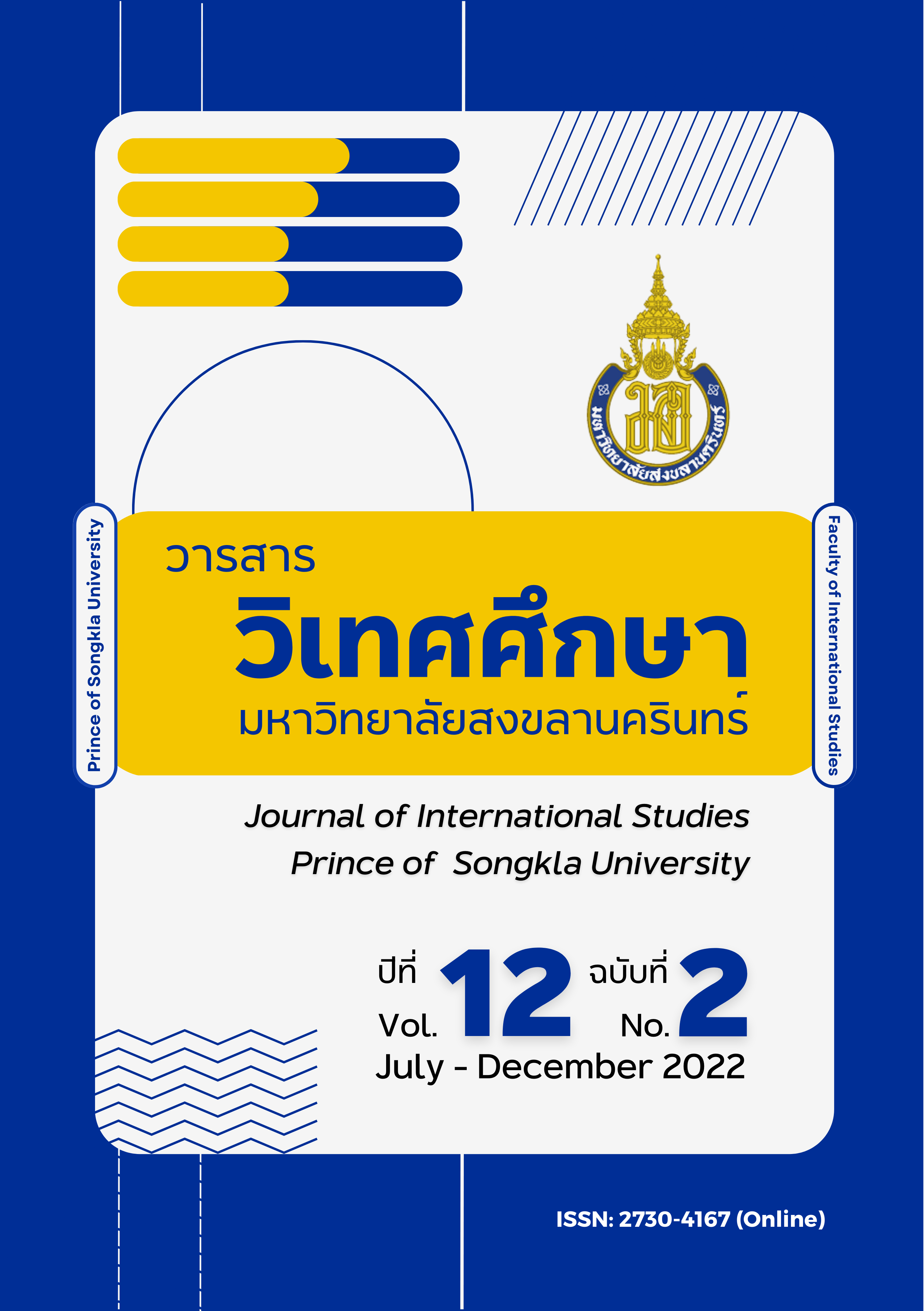Needs and guidelines for the development of an enrichment curriculum to enhance reading literacy for student teachers of Thai language major
Main Article Content
Abstract
The objectives of this study are to: 1) investigate the needs for the development of an enrichment curriculum to enhance reading literacy for student teachers of Thai language majors; and 2) analyze the development guidelines for such a curriculum, Faculty of Education, Nakhon Si Thammarat Rajabhat University. The researcher examined and analyzed the data from the literature studies, asked 144 students about their needs, interviewed 5 administrators, and held focus groups discussion with 7 instructors. The research instruments included a document analysis form, a questionnaire, a structured interview form, and guidelines for focus group discussions. Mean and standard deviation were used to examine quantitative data, whereas inductive content analysis was used to assess qualitative data.
The results of this study indicate that: 1) the study of needs for the development of an enrichment curriculum to enhance reading literacy for student teachers of Thai language major, the needs of students were at a high level. According to comments made on the needs of administrators and instructors, there were 5 topics: (1) Responding to the policy of 21st century teacher training and development; (2) A model of curriculum and learning management innovation; (3) A new learning management in the digital era; (4) Developing learners' proficiency with digital technology; (5) Providing policy recommendations.
2) The results of the guidelines analysis for the development of an enrichment curriculum to enhance Reading Literacy for student teachers of Thai language major, by analyzing the qualitative data. The following 6 approaches, which were analyzed to be effective: (1) Utilizing active learning and competency-based instruction; (2) Developing student attributes; (3) Teaching advanced reading; (4) Encouraging involvement in reading and social learning; (5) Implementing adaptive testing; (6) Creating the learning environments that support digital reading.
Article Details

This work is licensed under a Creative Commons Attribution-NonCommercial-NoDerivatives 4.0 International License.
Statements and opinions expressed in articles herein are those of the authors and do not necessarily reflect the position of the editors or publisher.
Article, information, text, image, etc. which are published in Journal of International Studies, belong to Journal of International Studies. If anybody or any organization would like to use part or whole of them, they must receive written permission from Journal of International Studies before usage.
References
มาเรียม นิลพันธุ์. (2558). วิธีวิจัยทางการศึกษา. นครปฐม: ภาควิชาหลักสูตรและวิธีสอน คณะศึกษาศาสตร์ มหาวิทยาลัยศิลปากร.
สถาบันส่งเสริมการสอนวิทยาศาสตร์และเทคโนโลยี. (7 มกราคม 2563). ผลการประเมิน PISA 2018 นักเรียนไทยวัย 15 ปี รู้และทำอะไรได้บ้าง. FOCUS ประเด็นจาก PISA. https://pisathailand.ipst.ac.th/issue-2019-48/
สำนักงานราชบัณฑิตยสภา. (2562). พจนานุกรมศัพท์ศึกษาศาสตร์ร่วมสมัย ชุดความฉลาดรู้ (literacy). กรุงเทพ ฯ: สำนักงานราชบัณฑิตยสภา.
Baron, N. S. (2017). Reading in a digital age. Kappanonline. org. 99(2), 15-20.
Bezanilla, M. J., Nogueira, D. F., Poblete, M., & Domínguez, H. (2019). Methodologies for teaching-learning critical thinking in higher education: The teacher’s view. Thinking Skills and Creativity, 33. https://doi.org/10.1016/j.tsc.2019.100584
Bean, J. C., & Melzer, D. (2021). Engaging ideas: The professor's guide to integrating writing, critical thinking, and active learning in the classroom. books.google.com.
Chappell, C., Gonczi, A., & Hager, P. (2020). Competency-based education. In Foley, G. (Eds.), Competency-based education (pp. 191–206). London: Routledge.
Egger, M. L. (2022). Reading with Social, Digital Annotation: Encouraging Engaged Critical Reading in a Challenging Age. [Doctoral dissertation, Old Dominion University]. DOI:10.25777/hpn4-yw42
Glatthorn, A., Boschee, F., Whitehead, B. M., & Boschee, B. F. (2019). Curriculum Leadership Strategies for Development and Implementation. (5th ed.). Los Angeles: SAGE.
Johnstone, S. M., & Soares, L. (2014). Principles for Developing Competency-Based Education Programs. Change: The Magazine of Higher Learning, 46, 12-19.
Mullis, I. V. S., & Martin, M. O. (2019). PIRLS 2021 Assessment Frameworks. https://timssandpirls.bc.edu/pirls2021 /frameworks/
OECD. (2019). Future of Education and Skills 2030 Conceptual Learning Framework. www.oecd.org/education/2030-project
Trawick, A. R. (2019). The PIAAC Literacy Framework and Adult Reading Instruction. Adult Literacy Education. 1(1), 37-52.
Van, L. H., Li, C. S., & Wan, R. (2022). Critical reading in higher education: A systematic review. Thinking Skills and Creativity, 44.
UNESCO IESALC. (2021, November 28). Thinking Higher and Beyond: Perspective on the Future of Higher Education to 2050. https://unesdoc.unesco.org/ark:/48223/ pf0000377530


